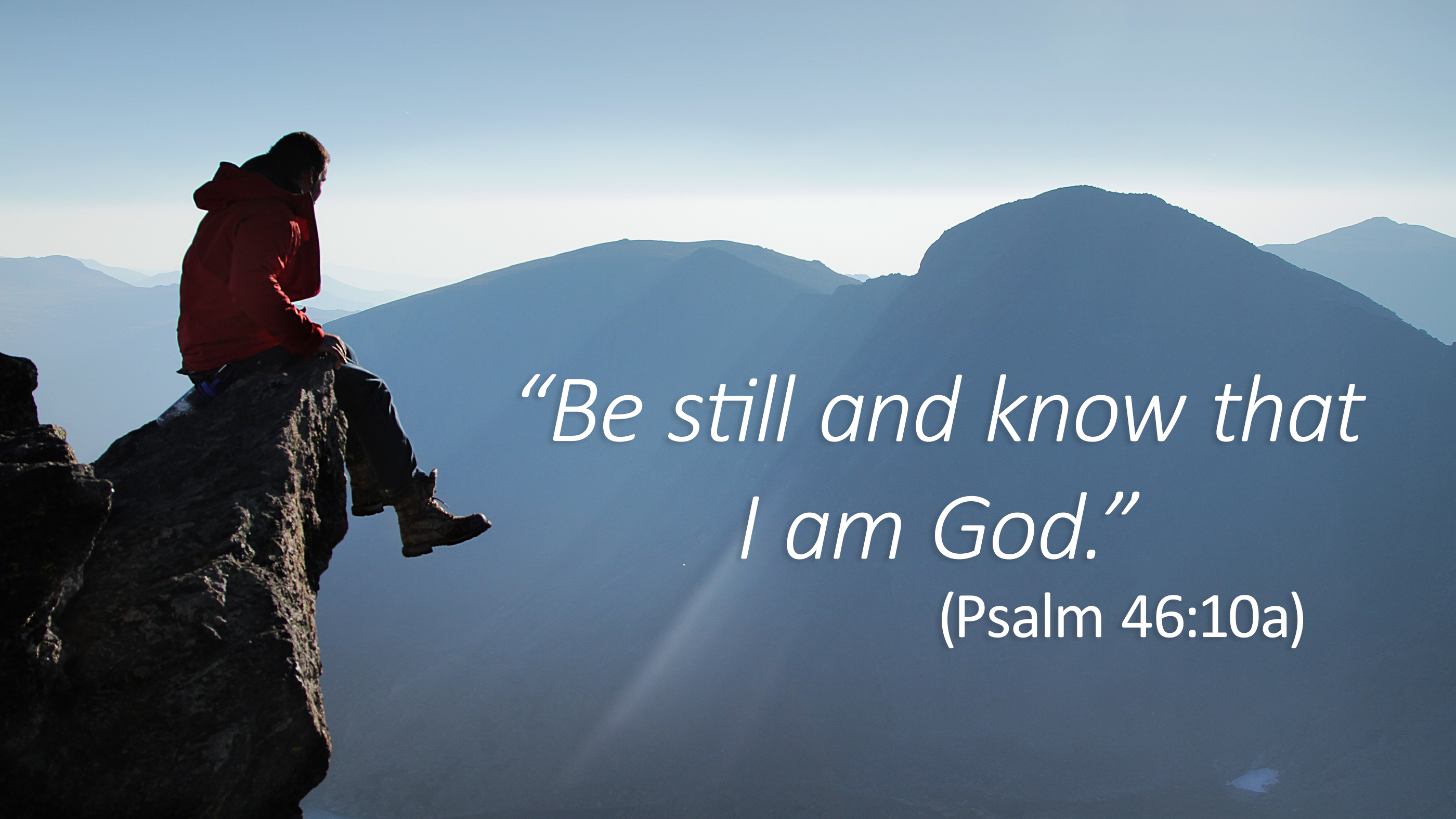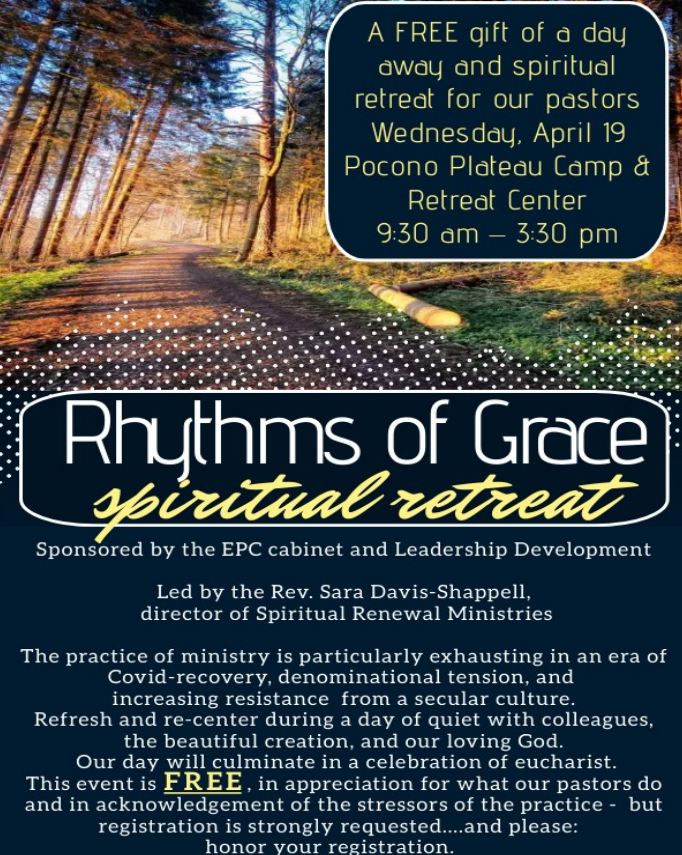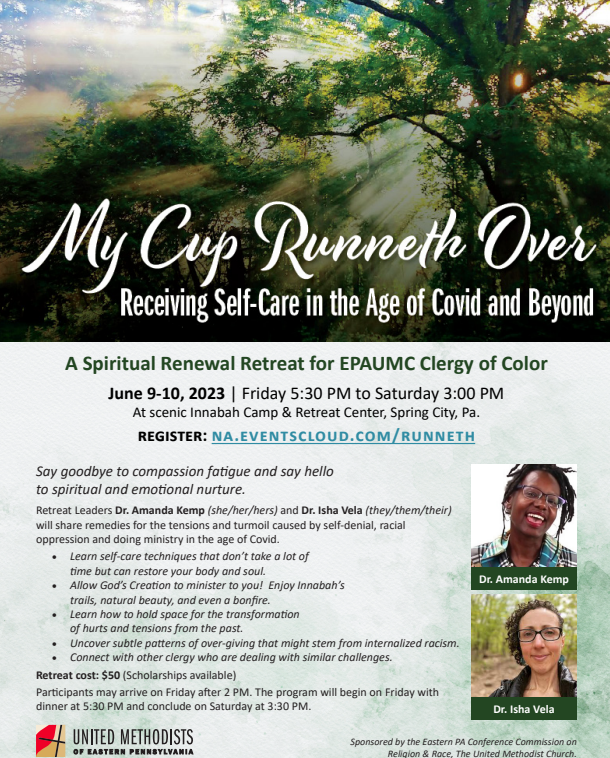
“Be still and know that I am God.” (Psalm 46:10a)

When Mike Slaughter spoke at Hopewell UMC’s Planting Seeds for Ministry event back in 2015, I recall him repeating one of his favorite lines: “Our God does some of his best work in cemeteries.” (cf. Ezekiel 37:1-14, Matthew 8:28-34, John 20:1-10).
In the midst of seemingly dead-end situations professionally and personally, I have hung onto that hope—even generalized it a bit to proclaim, “Our God does some of the best work in the midst of chaos.” That’s the biblical affirmation from the very start: Challenged by the dark and meaningless chaos of the primordial world, the spirit of God hovered over the face of the deep (Genesis 1:2)….and repeatedly brought forth good.
Despite that assurance, I’ve spent much of my ministry career attempting to dispel chaos, or at least the appearance of chaos. For years, we were told, “People in the pews want clarity and certainty if they’re going to follow your leadership!” Well, what’s the chance of that happening in the aftermath of Covid…plus 40 years of local church decline…and intense political division in America…and denominational schism?
Pastors have not lost their passion for the mission; but the widespread perception of chaos these days is causing nearly 50 percent of them to give “serious, real consideration” to quitting fulltime ministry right now (Christian Century magazine, March 2023). That can’t be good.
Acknowledging doubt can make you more persuasive
Curiously, author Brene Brown upends this assumption that the best leaders are those who labor to dispel all chaos.
“New research suggests that when [leaders] acknowledge the uncertainties around facts on complex issues, it doesn’t undermine their [followers’] trust. When someone knowledgeable admits uncertainty, it surprises people and they end up paying more attention to the substance of the argument. Multiple experiments have shown that when experts express doubt, they become more persuasive.” (Atlas of the Heart, p. 72)
More attention? More persuasive? That would definitely be good.
The best medicine for unsure pastors these days is likely an honest confession of the bewildering complexities of the current environment. Add to that a deepening of our own spirituality and a reminder that the One responsible for bringing good out of the chaos is God…not me.
In her encouragement of hard-working pastors entrenched in declining and disrupted churches, Stephanie Spellers concludes a list of important “To Do’s” by saying: “Finally, rest in God’s grace, because the revolution is not ultimately up to us.” (The Church Cracked Open, p. 119)

Opportunities for rest and renewal
Rest! Sabbath. Retreat and renewal. Because we’ve heard you and because we’re circling back to the start (again, Genesis 1:2), the Leadership Development office is partnering with the Cabinet to offer at least three upcoming opportunities for guided spiritual retreats within the community of EPA pastors:
- Wednesday, April 19, at 9:30 a.m. to 3:30 p.m. at Pocono Plateau Camp & Retreat Center
- Thursday, May 11 at Gretna Glen Camp & Retreat Center
- Wednesday, September 20 with Rev. Ron Bell of UM Upper Room Ministries. (Site to be determined.)
We’re calling them “Rhythms of Grace Spiritual Retreats.” Watch for registration details.

Also, all EPA racial-ethnic clergy are urged to attend the Retreat for EPA UMC Clergy of Color, June 9-10, at Innabah Camp & Retreat Center in Spring City, PA, sponsored by EPA’s Commission on Religion & Race. Learn more here.
Remember: “God is a God not of disorder but of peace.” (I Corinthians 14:33) Embrace the complexities, pastors, as a laboratory for God to do some of his best work. Then encourage your congregation to believe and do the same. And as for you, rest a bit. Trust. Find peace. That would be very good.
“God is a God not of disorder but of peace.” (I Corinthians 14:33) Embrace the complexities, pastors, as a laboratory for God to do some of his best work. Then encourage your congregation to believe and do the same. As for you, rest a bit. Trust. Find peace. That would be very good.
Questions for reflection
- What other examples—biblical, historical, or personal–-can you cite where God made something good out of chaos?
- Why might a leader’s honest confession of complexity and uncertainty actually inspire hope for the future, rather than undermine it?
- Besides a spiritual retreat, what other practices can help to instill calm and confidence in the midst of challenging times?
*The Rev. Steven Morton is the EPA Conference’s Leadership Development Manager. He spearheads our new Pathways to Congregational Fruitfulness & Health Initiative.
